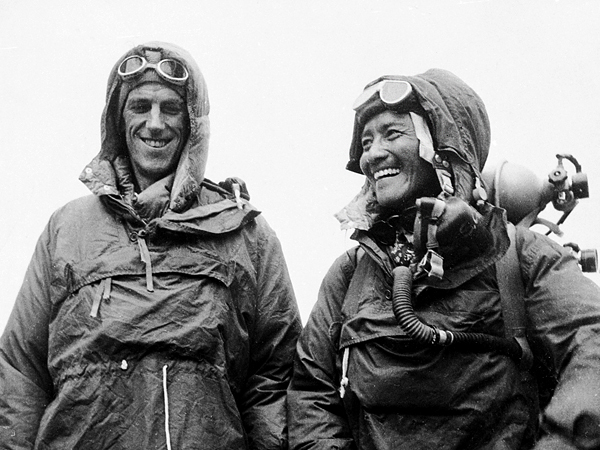Who really was first to climb Mount Everest?

The enduring controversy over who was first to climb Mount Everest could soon be settled after an Australian adventurer set off to find evidence that British climber Andrew "Sandy" Irvine was first to scale the peak.
Duncan Chessell, who began a final assault on the 29,035ft summit of Everest today, says conditions are the best they have been in decades to search for the remains of Irvine.
Irvine is thought to have been carrying a camera which could provide conclusive film evidence that the pair reached the top in 1924, almost 30 years before Sir Edmund Hillary.
Irvine's climbing partner, George Mallory's body was located by searchers in 1999.
Chessell said: "I was at North Col last week and the wind was 150 kilometres an hour, and it was stripping snow off the mountain which has been there for many years.
"There is now bare rock exposed which has been deeply covered for decades in the most likely areas where Andrew Irvine's body may be.
"It is my intention to search those areas en route to the summit and take this rare opportunity to find him and, perhaps, the missing camera."
The North Col, at 23,130ft, is on the route Mallory and Irvine would have followed to the summit.
Chessell, from Adelaide, who is attempting to become the first Australian to reach the summit three times, said: "I have studied this matter very closely and am now very familiar with Mt Everest.
"I believe we have a good chance of finding something."
He is aiming to make the summit on May 23 or 24.
Although Sir Edmund Hillary and his companion Tenzing Norgay are credited with having been the first to reach the peak, on May 29, 1953, the theory that Mallory and Irvine beat them to it has caused controversy for many years.
The British pair, from the Wirral in Cheshire, were last sighted on June 8, 1924, on the northeast ridge of Everest, only a few hundred yards from the summit.
When the body of Mallory, who famously climbed the mountain in his three-piece suit, was found at 26,760ft, a photograph of his wife Ruth was missing from the pockets.
He had planned to leave the picture on the summit.
Mallory's goggles were in one pocket, suggesting he was on his way down in fading light when he fell to his death.
But the holy grail for searchers is the camera that Irvine, who was 22 when he died, was carrying.
It could furnish the most crucial clue, a photograph taken on the summit.
Experts say the film should still be printable after all these years, given that it would effectively have been in deep freeze.
Several unsuccessful searches have been carried out for Irvine's body over the decades and earlier this year there was a claim that it had been spotted on aerial photographs.
When Sir Edmund, who died in January 2008, was once asked his view on the controversy, he replied: "I do not know whether Mallory and Irvine reached the summit.
"What I do know is that Tenzing Norgay and I were the first to get to the top and back down to the bottom again."



Komentar
Belum Ada Komentar